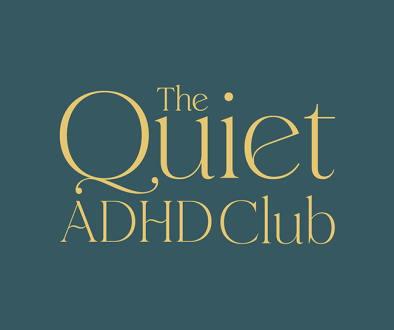What if you don’t want a neurodivergent (ND) diagnosis?

Key points
- Individual needs vary. The decision to pursue a diagnosis should be based on your individual needs and circumstances.
- Available resources vary. Consider the availability of support services and resources in your area.
- Personal comfort varies. Trust your instincts and choose what feels right for you.
Just like processing any big news in life, coming to terms with a neurodivergent (ND) diagnosis can vary. For many people, it can provide a sense of intense relief and vindication. It can even be empowering. Everything starts to slot into place, you gain more understanding and self-compassion, and you can take steps to manage it. It’s only the beginning of the journey, but at least it’s the end of being in the dark.
For others, it’s not quite that simple. You might heavily suspect or outright know you are neurodivergent, but either can’t or have no interest in pursuing a formal diagnosis. This can be for several reasons and is a valid choice. Although diagnosis can open doors to resources, information, and support, it’s not a straightforward decision for everyone.
Why do people pursue ND diagnosis?
First and foremost, many people pursue a neurodivergent diagnosis for clarity and relief. A diagnosis provides a clear explanation for lifelong challenges, offering relief and reducing feelings of isolation. It can also provide access to resources.
Individuals may be able to access specialised support services, accommodations, and treatments tailored to them. This can help to overcome many years of clinical misdiagnosis and dismissal, which in itself can be a trauma. Finally, a person diagnosed can gain a deeper understanding of oneself and one’s strengths, fostering a sense of empowerment, self-acceptance, and more self-compassion.
A diagnosis can help individuals understand past experiences through a neurodivergent lens, potentially reframing negative interpretations. For example, a person may have struggled with social interactions throughout their life. A diagnosis of Autism could provide a new perspective, understanding that their difficulties may be related to sensory sensitivities or challenges with social cues.
Why do some people hesitate to get diagnosed?
Equally, many people may find the process of diagnosis daunting or off-putting. This doesn’t mean they do not want help.
People may fear stigma – that the diagnosis could lead to discrimination or negative stereotypes, resulting in them feeling put in a box. A diagnosis can also have professional ramifications. Although we have come a long way in understanding neurodiversity in the workplace, we still have a way to go. People may worry that diagnosis could negatively impact their career or relationships.
Another key thing to consider is the individual’s background. Certain cultures or religious beliefs may influence someone’s attitudes toward disability and diagnosis. Family members might react negatively or disbelievingly to a diagnosis for cultural reasons or lack of understanding.
Some people may simply want to avoid labels or categorisation.
Another important thing to consider – especially here in the UK – is, unfortunately, the barriers to treatment. Waiting lists for assessment and prescriptions have been much longer since the pandemic and this is likely to be ongoing. This means that from the point of self-referral, an individual could be waiting several months or even years to reach the point of assessment. This can make some people feel like they are at a standstill. However, it’s vital to acknowledge that diagnosis is not the be-all and end-all if you don’t need medication. There are many online resources and communities dedicated to discussing neurodiverse issues and you can seek a therapist who is inclusive and knowledgeable about neurodiversity.
Self-improvement without a diagnosis
It’s important to note that a diagnosis is not a prerequisite for self-improvement. Many individuals with ND traits have successfully navigated life without a formal diagnosis. By understanding their unique strengths and challenges, and implementing appropriate strategies, individuals can make significant progress in their personal and professional lives.
In terms of workplace well-being, diagnosis is also not essential for reasonable adjustments. According to UK disability law, disability is chronic difficulties in everyday life lasting 12 months or more. For example, let’s say you have had significant problems with learning or following instructions for over a year. You strongly suspect you have ADHD. In this case, you can disclose self-diagnosis and ask your workplace for basic accommodations and adjustments. Ultimately, this helps you work more effectively, which is mutually beneficial. Your employer should respect your request considering the current barriers to NHS treatment.
Ultimately, the decision to seek an ND diagnosis is a deeply personal one. Whether or not to pursue a diagnosis is a choice that should be made carefully, considering your individual needs, values, and goals.



